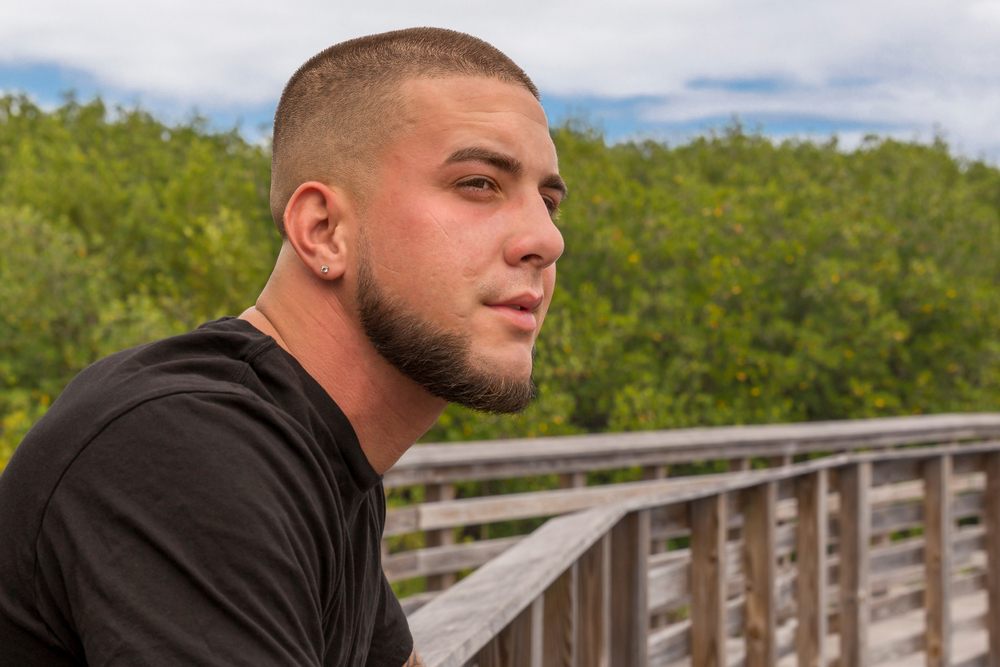Though you may primarily associate PTSD with military service, anyone can develop disruptive and challenging symptoms due to trauma. It’s possible to have PTSD even if you haven’t gone through a life-threatening experience. For example, witnessing violence or injury toward others can be profoundly traumatic for some people.
Developing PTSD as a young adult can have long-term effects on your mental and physical health. Without treatment and support, PTSD will continue getting worse, harming your relationships and quality of life.
What Does PTSD Feel Like?
For a mental health professional to make a PTSD diagnosis, symptoms like these must be severe enough to interfere with your daily life for more than a month.
- Flashbacks to the traumatic event
- Panic attacks
- Anxiety, depression and guilt
- Difficulty concentrating and making decisions
- Nightmares, insomnia and other sleep disruptions
- Lack of interest in previously enjoyable activities
- Aggression or irritability
- Feeling numb or detached
- Difficulty relaxing; startling easily
- Avoiding potential triggers, including people, places or situations that may remind you of your trauma
- Suicidal thoughts
Over time, the chronic stress of PTSD can also lead to physical health issues like hypertension, headaches, weight gain, digestive problems and muscle aches.
What Causes PTSD in Young Adults?
Sometimes, it’s easy to pinpoint the cause of young adult trauma. However, PTSD that stems from prolonged events such as family dysfunction, adoption insecurities or emotional abuse may be more challenging to spot. Initially, co-occurring disorders like substance abuse might obscure the PTSD symptoms and lead to a missed diagnosis.
Though many young men believe it’s possible to “push through” mental health issues without therapy, that is rarely the case. Trauma treatment can identify the root causes of PTSD and teach you ways to move forward.
What Is Trauma Therapy?
Some of the most effective techniques for healing trauma include evidence-based practices like cognitive behavioral therapy and eye movement desensitization and reprocessing. CBT helps people change their thought patterns, beliefs and assumptions about the trauma they experienced, while EMDR uses specific techniques to desensitize your psychological response to unwanted thoughts and memories.
Young adults with PTSD also need skills for navigating this disorder’s long-term social effects. Relational trauma typically results in attachment issues, including difficulty forming close relationships. Children who cannot bond properly with their caregivers may mature into young adults who lack the capacity to nurture themselves. Therefore, treatment for young adult PTSD involves helping clients develop self-acceptance and self-compassion.
Men-Only Treatment for Young Adults
PTSD can undermine your sense of safety and security, making the world feel frightening. At PACE Recovery, we treat the underlying trauma that manifests in mental and behavioral health disorders. Coping mechanisms such as substance use and self-harm are often signs of unresolved trauma. For young adults to heal from PTSD, they need compassionate care that helps them build resilience, insight and the courage to face the past.
As a gender-specific treatment facility, PACE Recovery provides an environment uniquely tailored to the needs of men aged 18 to 30. We are proud to offer a complete continuum of care for young men with trauma, substance use disorder, mental illness, relationship issues, insecure attachments and more. To ensure our clients receive the most effective possible care, our staff includes doctoral- and master’s-level therapists plus certified drug and alcohol counselors. Connect with us today to learn more about how we can help you.



